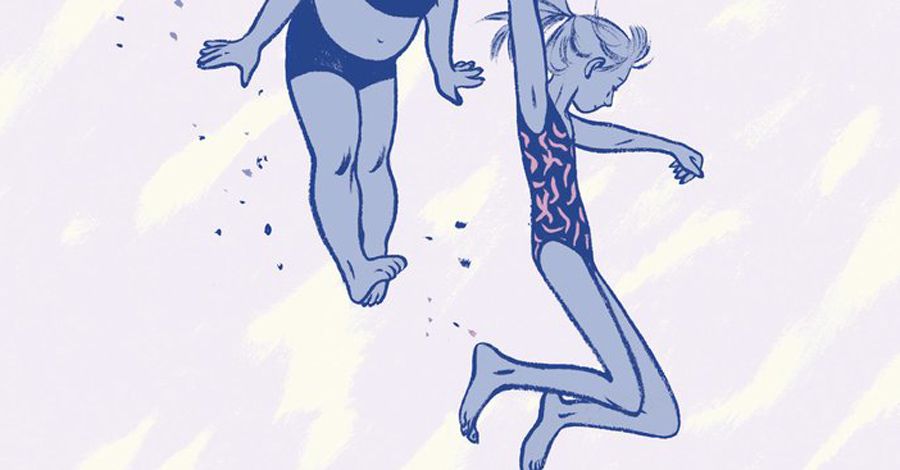Mariko and Jillian Tamaki's award-winning graphic novel This One Summer has been removed from the library of the public school in Henning, Minnesota, which serves grades kindergarten through 12, on the basis of a single complaint.
The American Library Association's Intellectual Freedom Blog reported on the incident, which, ironically, might never have occurred if the book hadn't won so many awards and garnered such good reviews:
The graphic novel was purchased for the school library based on reviews and awards. But a comment was made during our phone conversations that if the book had been seen, prior to purchasing, it wouldn’t have been purchased. The person I spoke to said they wouldn’t want their child to read the book and agreed with the complaining parent that no child, regardless of age or grade should be able to read the book.
This One Summer was a Caldecott Honor book, the first graphic novel to attain that distinction. Because the Caldecott awards are for picture books, almost all of the honorees are for young children. First Second, the publisher of This One Summer, recommends the book for ages 12-18, and most reviewers, including professional publications such as School Library Journal, agree with that. However, the Comic Book Legal Defense Fund reported last year that the book was being challenged in a number of communities because libraries were ordering the book thinking it was for young children.
A coming-of-age story, This One Summer centers on Rose, who's on the brink of adolescence, as the vacations with her family at their summer lake cottage. There, she becomes fascinated with the lives of the local teens (one of whom is pregnant) while dealing with tensions within her own family and with her younger friend Windy. The book contains some crude language and blunt talk about sex.
Although the ALA strongly recommends having policies and procedures in place for library challenges, the Henning school has no policy and a very informal procedure — complaints go to the school principal and the principal decides what to do — without being required to consult with professionals or even read the book. Because the nearest public library is about 20 miles away, this gives one person considerable power over what books are available to local teens, with no path for appeal.
The ALA's Office for Intellectual Freedom has written to the Henning superintendent asking that the book's withdrawal be reconsidered and the district institute more formal procedures for library challenges.
(via the CBLDF blog)

